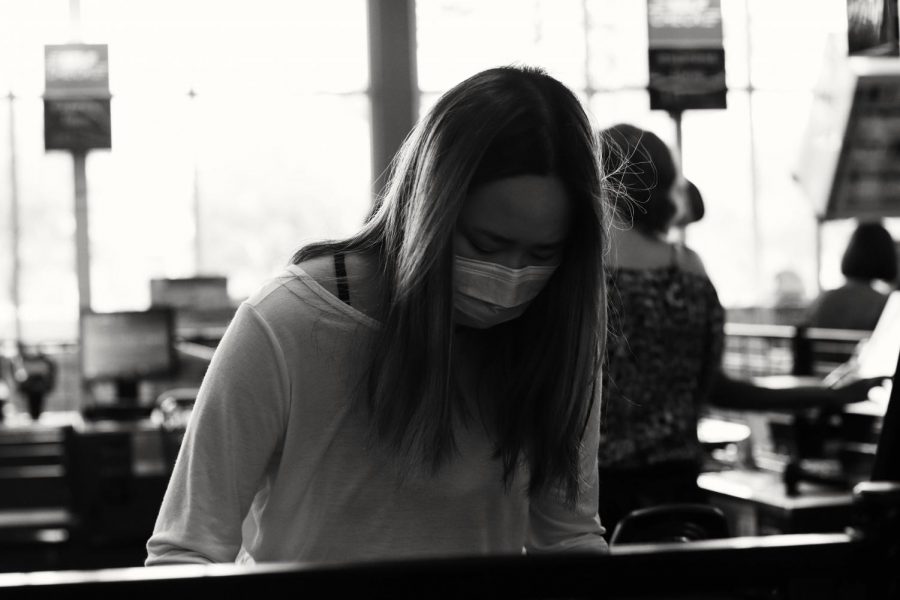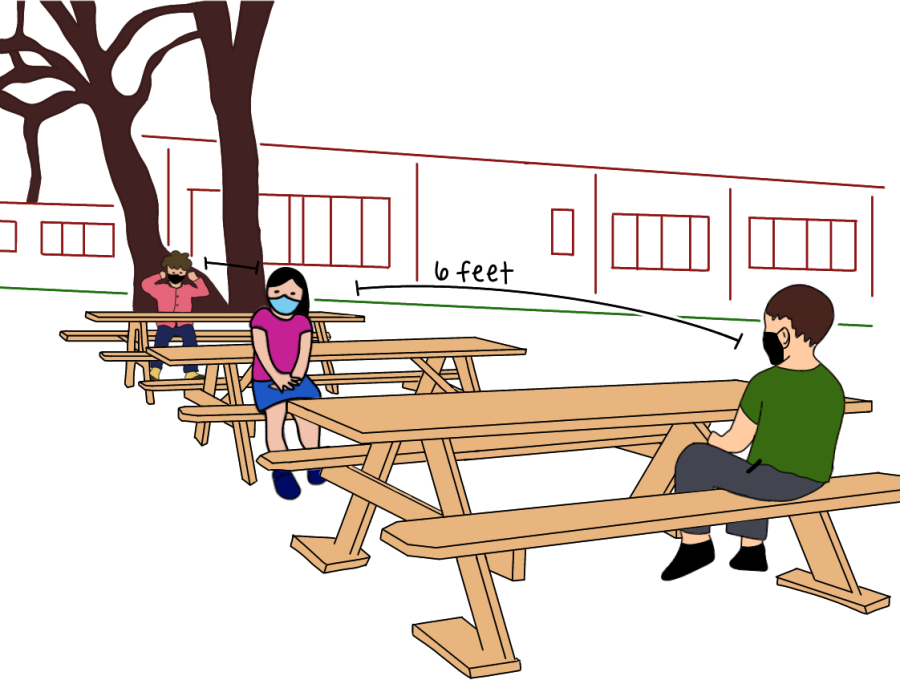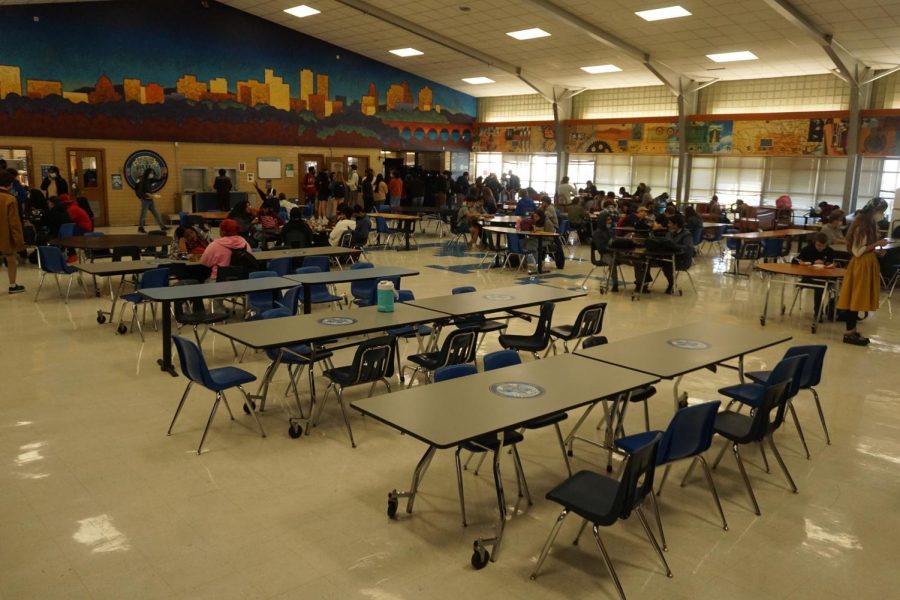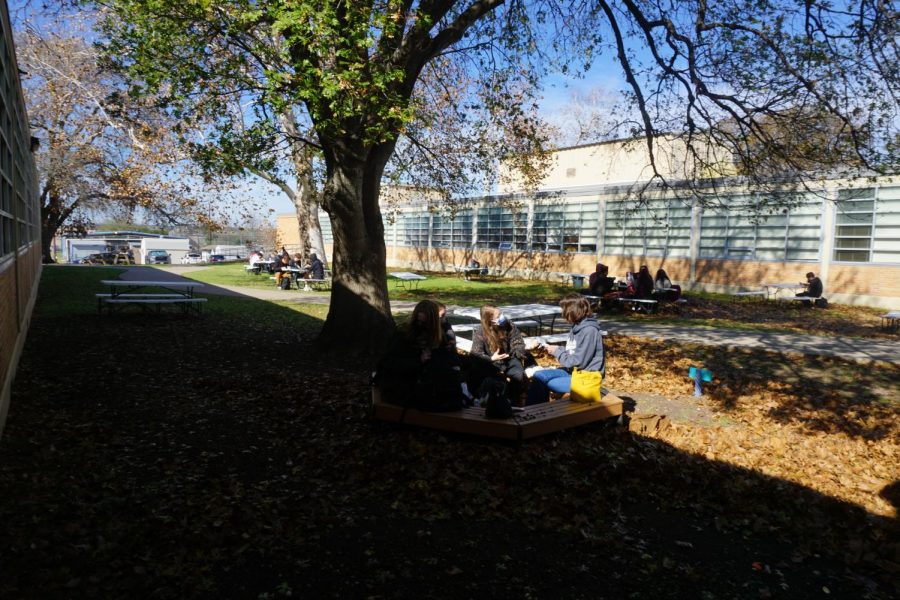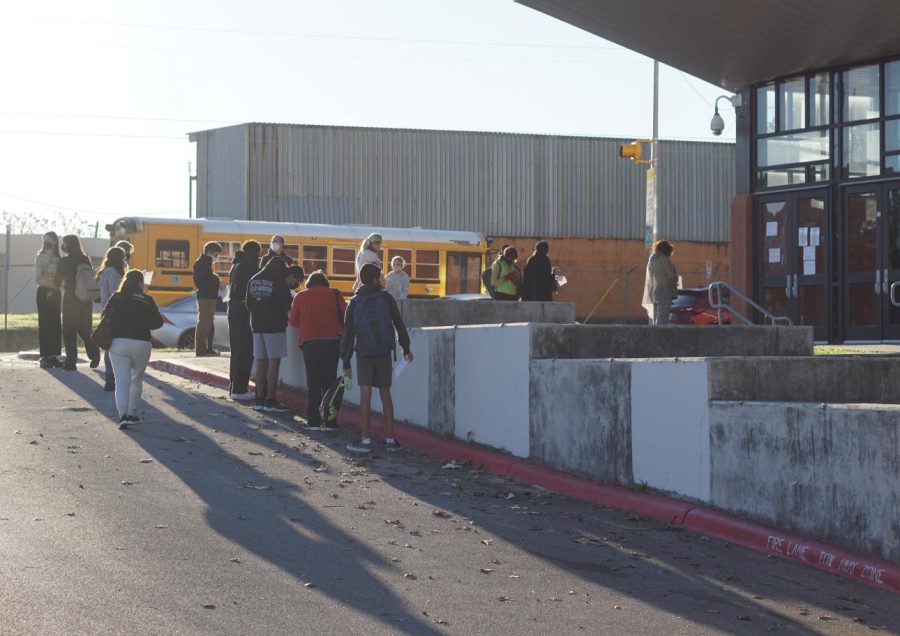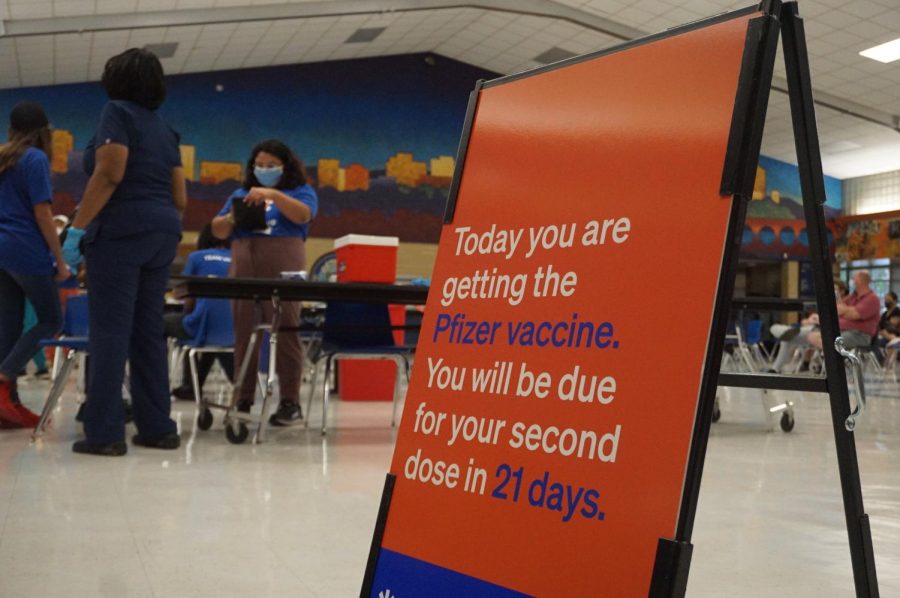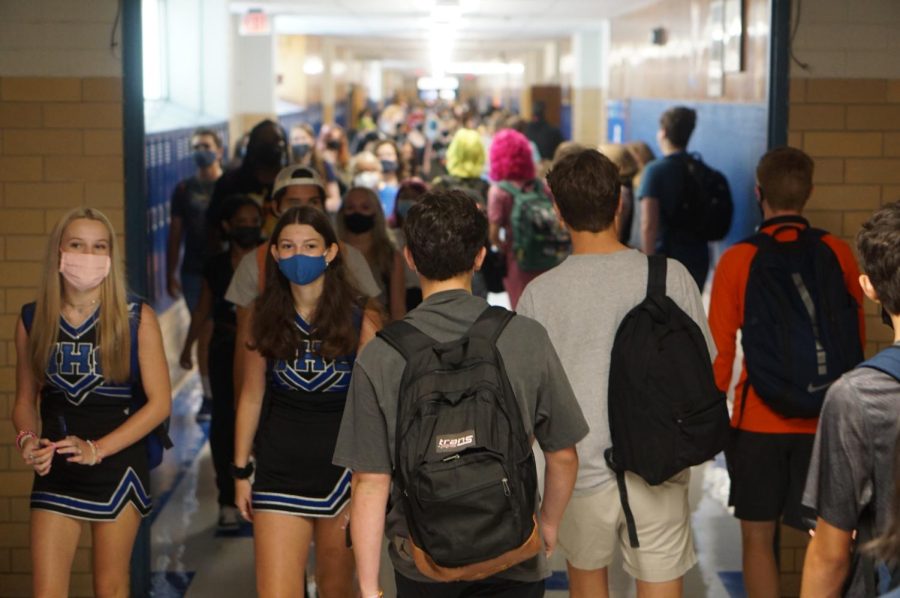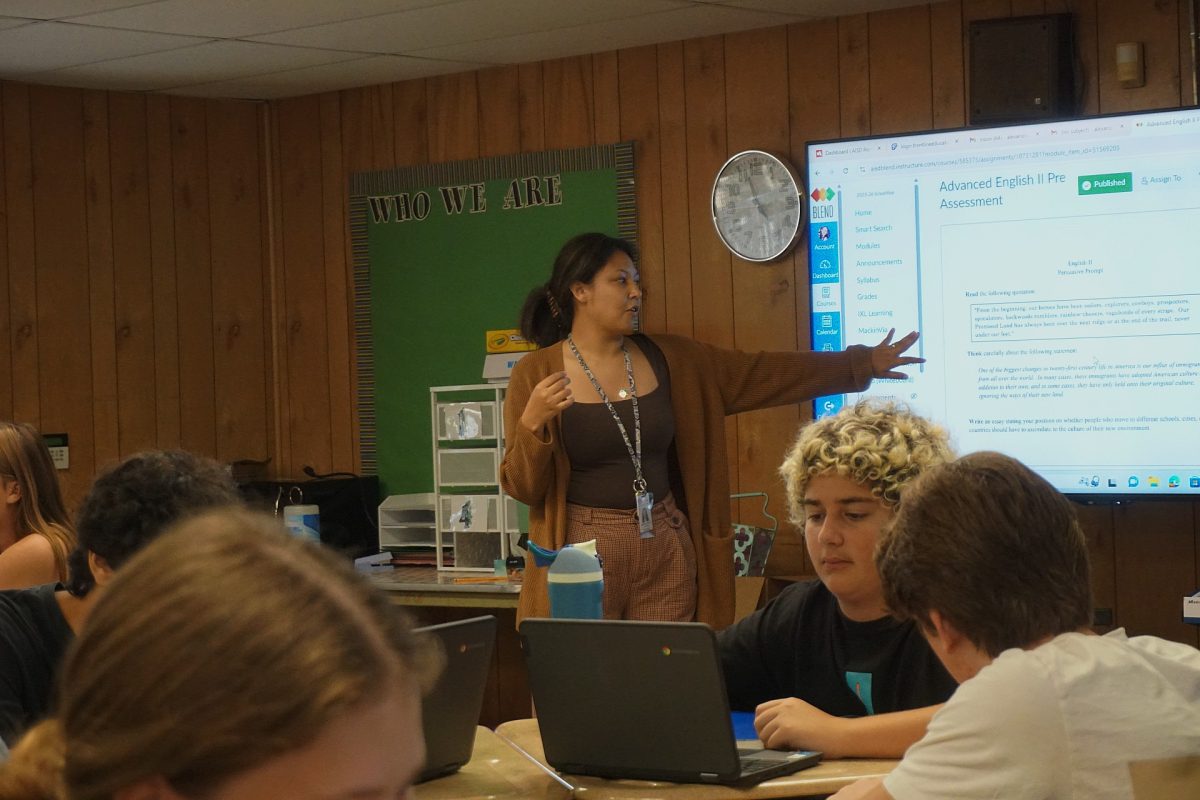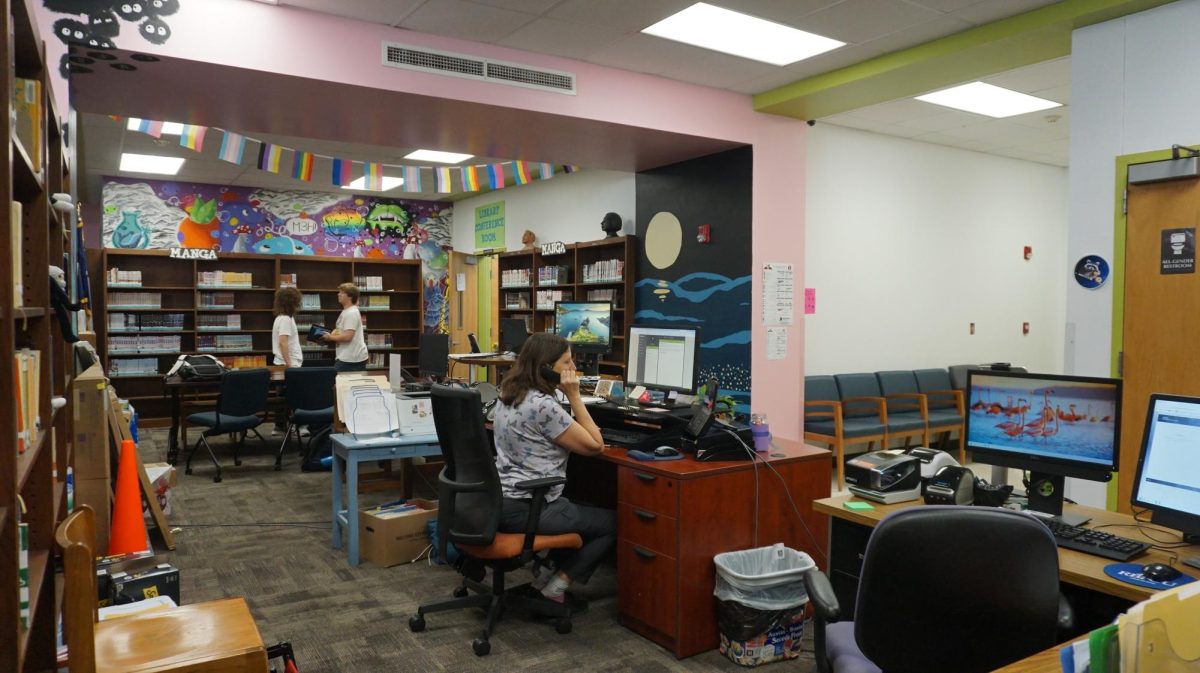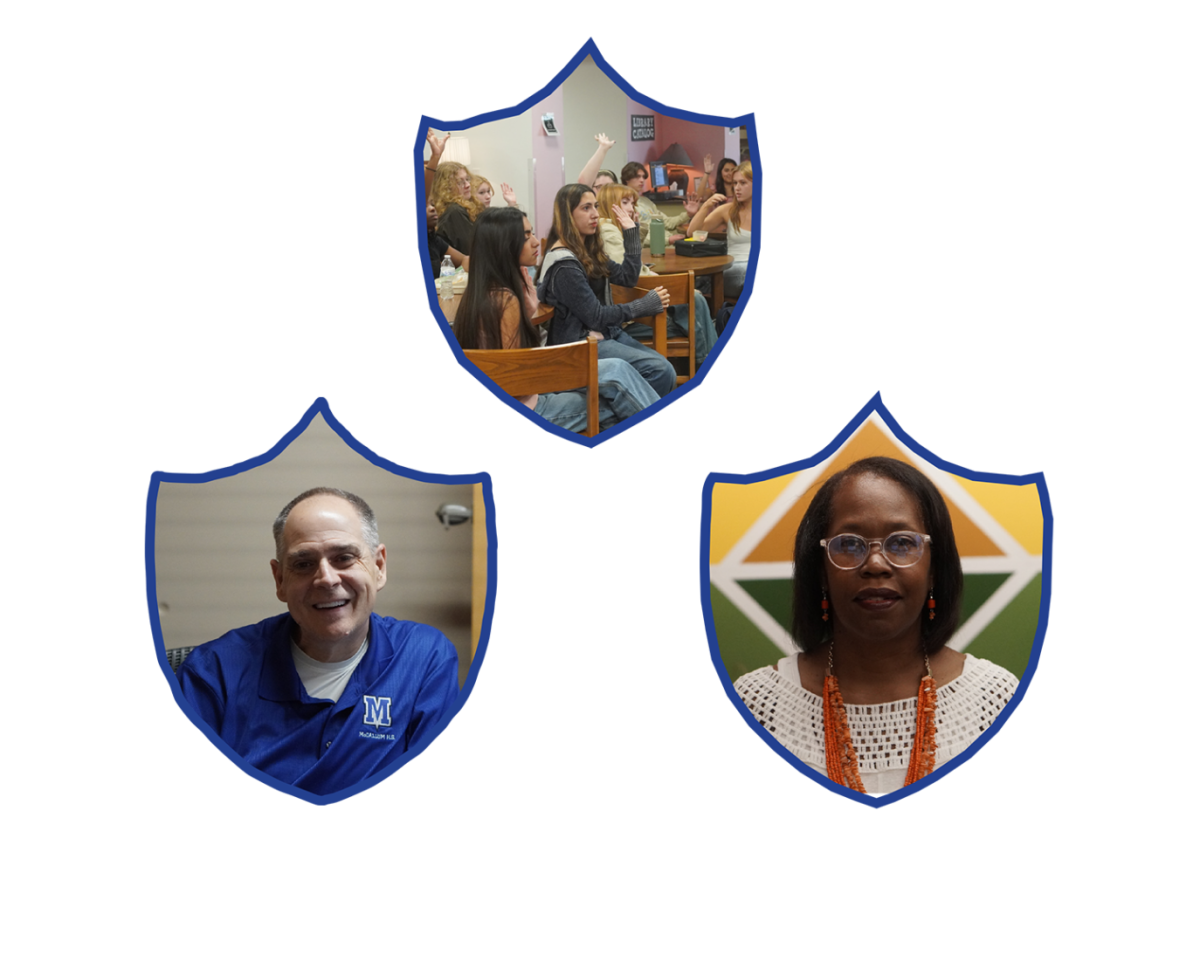With COVID-19 cases increasing in Travis County each day, it is becoming increasingly important to know how to protect yourself by minimizing the risk of contracting it. With online classes starting at Mac on Monday, we thought we’d offer on online crash course on the coronavirus and how to avoid it.
According to the Centers for Disease Control, the coronavirus is mainly transmitted through person-to-person contact. Specifically, it is spread through the transferring of respiratory droplets from infected individuals. You can catch the virus from something as simple as touching an infected doorknob or by shaking someone’s hands. Though the virus is easily transmitted, there are also simple steps you can take to prevent it from coming your way.
ABOUT THIS VIDEO: Daily Show host Trevor Noah interviewed infectious diseases expert Dr. Anthony Fauci on March 26. Fauci shares that COVID-19 is insidious because it is a respiratory illness with a high mortality rate. He and busts many myths about the virus and breaks down why adhering to public health guidelines is paramount. Young people are not invulnerable to the virus, and even though they are less at risk they can easily transmit the disease to others who are more at risk. There is no scientifically confirmed treatment for COVID-19, and there is no automatic timetable about how long it will take the virus to run its course. The video originally appeared on The Daily Show with Trevor Noah YouTube channel.
The most basic, of course, the one that’s keeps us from returning to school is social distancing; the practice is fairly self-explanatory. It means isolating yourself physically and socially for other people. This means using the six-foot rule when interacting with non-immediate family, and the fewer people you interact with, the better. In order to slow the spread of COVID-19, people must eliminate chances for the virus to jump from one person to another because that’s the only way it spreads. With fewer people out and about, there are fewer opportunities for spreading, and a better chance that the virus will run its course more quickly. It is of utmost importance, therefore, for all of us to follow the government protocols that encourage or force us to practice social distancing. On March 31, Gov. Greg Abbott instituted an executive order, basically saying that people should not leave their homes for work outside of home unless it is an essential service. The order is in place until at least May 4.
View this post on Instagram
ABOUT THIS VIDEO: The New York Times posted this video suggesting a routine for cleaning commonly used surfaces in the home to prevent the spread of infection. Video originally posted on the New York Times Instagram account on March 19.
Keeping yourself and commonly used surfaces clean is another essential way to keep COVID-19 at bay. It can live on many surfaces, surviving the longest on metal and wood (up to five days on metal), and can obviously be spread through human contact with those surfaces. It is a good idea to keep frequently used surfaces such as doorknobs, tables, and handles clean. At home, my father — who works in construction (an essential job under the city and state orders) — frequently sprays down highly-interacted-with surfaces with a bleach and water solution, and removes his shoes after getting home from work.
ABOUT THIS VIDEO: Food celebrity Alton Brown breaks down the essentials of proper hand-washing in this video he posted to his Facebook page in support of the #SafeHands Challenge. Video originally posted on the Alton Brown Facebook page on March 18.
As you probably know, keeping hands clean is a must. Both hand washing with soap and hand sanitizer work effectively against COVID-19. When washing hands, use enough soap to cover your hands, and wash for at least 20 seconds total.
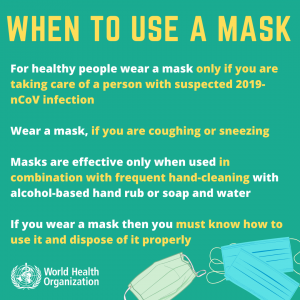 In terms of masks and gloves, the World Health Organization still encourages mask use only if you are infected or if you are caring for an infected individual. Many experts, however, such as Dr. Anthony Fauci of President Trump’s Coronavirus Task Force, are encouraging that people wear cloth masks in public areas. N95 respirator masks and medical-grade masks should be reserved for healthcare workers. There are many ways of making your own makeshift mask, and scarves and bandanas are just a couple materials that can be used in creating one. The main purpose of an effective mask is for it to cover your mouth, nose and face, so keep that in mind in order to create an effective mask if you must go out in public.
In terms of masks and gloves, the World Health Organization still encourages mask use only if you are infected or if you are caring for an infected individual. Many experts, however, such as Dr. Anthony Fauci of President Trump’s Coronavirus Task Force, are encouraging that people wear cloth masks in public areas. N95 respirator masks and medical-grade masks should be reserved for healthcare workers. There are many ways of making your own makeshift mask, and scarves and bandanas are just a couple materials that can be used in creating one. The main purpose of an effective mask is for it to cover your mouth, nose and face, so keep that in mind in order to create an effective mask if you must go out in public.
ABOUT THIS VIDEO: On Friday, PBS broadcast journalist Judy Woodruff interviewed Dr. Anthony Fauci of the National Institutes of Health, a key health officials on President Trump’s Coronavirus Task Force, regarding the need for government stay-at-home orders and for Americans to be wearing masks in public. Most importantly, Dr. Fauci explains how the coronavirus spreads. He tells Woodruff that one key indicator that there is an end in sight is when the number of news cases stays the same from day to day rather than increasing. This video was originally posted on the PBS News Hour YouTube Channel on Friday.
Though these are the uncertain times, you can stay informed and safe by following the government protocols and keeping yourself updated on the latest information concerning the virus. Even if you aren’t in the most at-risk age group, there are plenty of people who are, and everyone needs to take steps to prevent the transmission of the virus to keep all of our neighbors safe.
because every red light eventually turns green pic.twitter.com/x05GuITW4J
— Matthew McConaughey (@McConaughey) March 17, 2020
ABOUT THIS VIDEO: Austin resident and film star Matthew McConaughey posted this video to urge people to be smart about their behavior and practice social distancing without panicking about the pandemic. Video original posted on McConaughey’s Twitter feed, @McConaughey, on March 17.
Once you commit to social distancing, however, you also have to take steps to attend to you mental health and emotional well-being. Counselor Daniela Galván sent an email to the McCallum faculty which provided psychologist Margie Donlon’s advice on how to maintain your mental health while on COVID-19 lockdown.
Here are some of her suggestions:
- Stick to a routine. Go to sleep and wake up at a reasonable time, write a schedule that is varied and includes time for work as well as self-care.
- Help others. Find ways, big and small, to give back to others. Support restaurants, offer to grocery shop, check in with elderly neighbors, write psychological wellness tips for others—helping others gives us a sense of agency when things seem out of control.
- Find lightness and humor in each day. There is a lot to be worried about, and with good reason. Counterbalance this heaviness with something funny each day: cat videos on YouTube, a stand-up show on Netflix, a funny movie—we all need a little comedic relief in our day, every day.
- Find the lesson. This whole crisis can seem sad, senseless, and at times, avoidable. When psychologists work with trauma, a key feature to helping someone work through said trauma is to help them find their agency, the potential positive outcomes they can effect, the meaning and construction that can come out of destruction. What can each of us learn here, in big and small ways, from this crisis? What needs to change in ourselves, our homes, our communities, our nation, and our world?
The completes list of her suggestions is included here:
We know it’s a lot of information to process, but approaching the pandemic with an informed plan of attack is the best way to stay safe and sane in these trying times.



